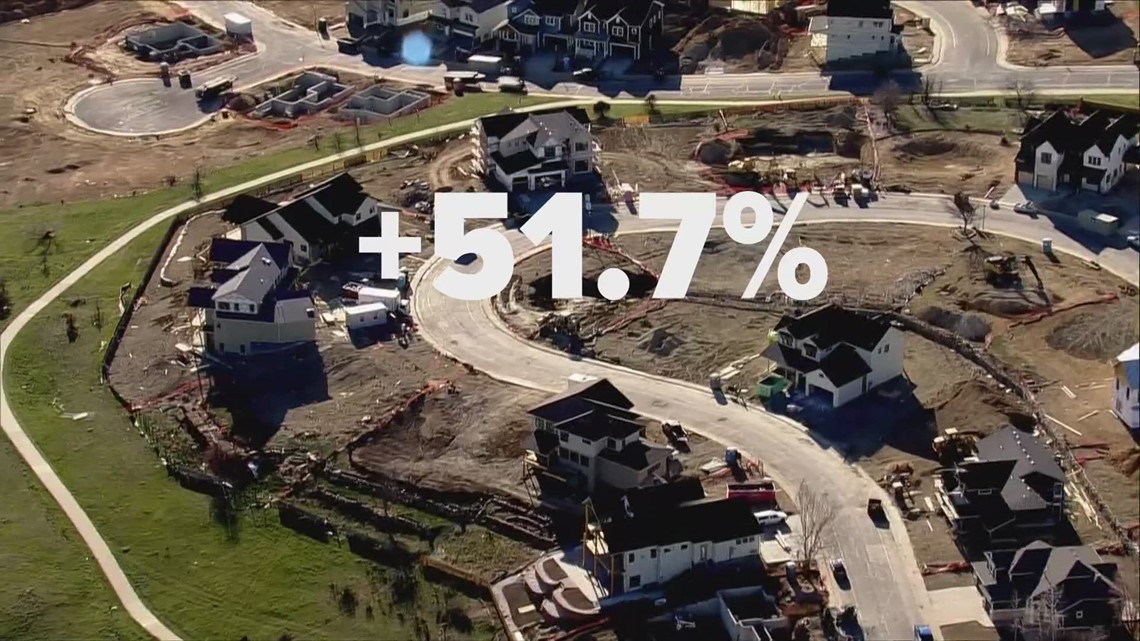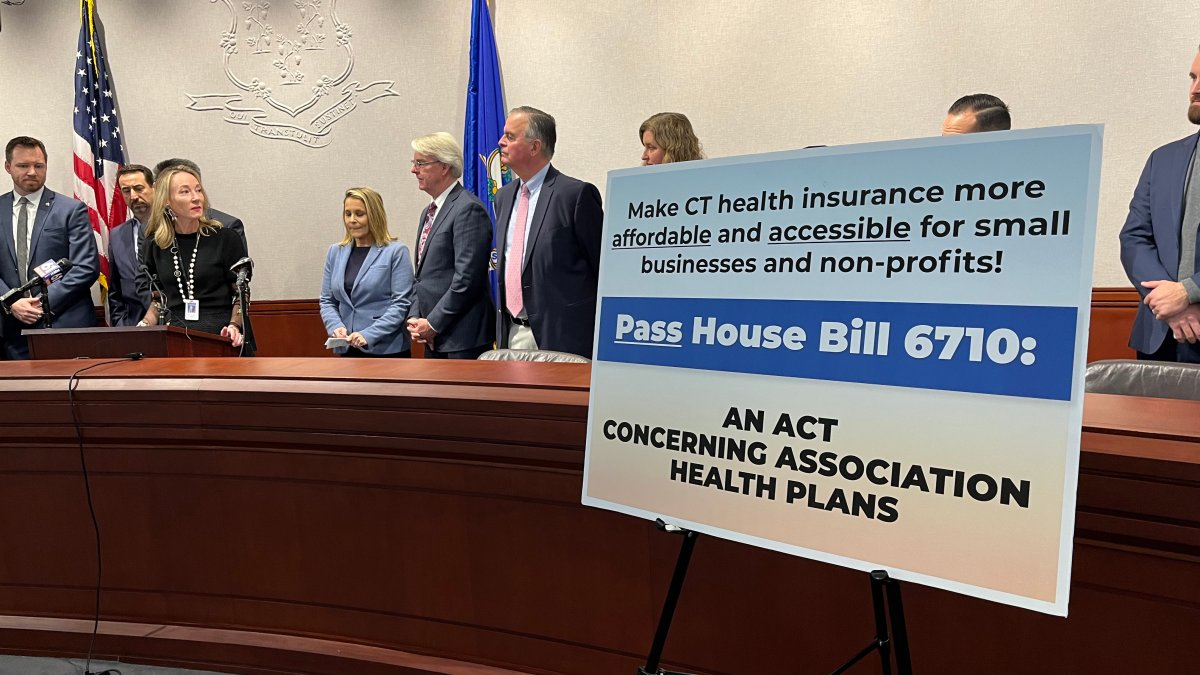Attempts to fix Florida’s failing property insurance market –

Collapse. Crisis. Those are the words nearly everyone—from the governor to industry analysts to insurance company CEOs—uses to describe the state of the property insurance industry in Florida.
“The private home insurance market in Florida is on a trajectory toward total collapse,” says Mark Friedlander, the Florida analyst for the Insurance Information Institute. “We’ve never seen anything like this man-made crisis anywhere else in the United States. Universal Property and Casualty, the largest private insurer in Florida, just announced a moratorium on writing new business in several Florida counties due to the unstable market. In total, 13 home insurers in Florida have stopped writing new business in either parts or the entire state since January.”
Here’s the point people may not want to hear: Homeowners in Southwest Florida and elsewhere in the state are partly to blame for what many call a national embarrassment. According to insurance companies and prosecutors, property insurance companies are being bled dry by homeowners, roofers and lawyers who file frivolous and even fraudulent claims.
Dishonest roofing companies—not all of them are, of course—knock on doors to convince homeowners to let them inspect their roofs for free. The roofer finds a little damage but tells the homeowner they will convince their insurance carrier to pay for a completely new roof. The roofing company has the homeowner sign what is known as an assignment of benefits, or AOB, in effect signing over the insurance policy to them.
When the insurance company refuses to pay, the roofer, armed with a homeowner’s AOB, sics a lawyer on the insurance company. When the insurance company caves or loses in court, it pays the company for the new roof and the plaintiff’s lawyer’s fee. The lawyer often adds a fee multiplier that can double or triple the award the roofer receives.
“When a homeowner or contractor wins a property claim lawsuit, the courts are allowed to award what’s called a fee multiplier on top of the claim payment,” Friedlander says. “All of this extra money goes to the plaintiff’s attorney, and the insurance company is on the hook for all of it.”
How big a problem could it be? “One attorney alone has filed 10,000 lawsuits against insurance companies in Florida,” Friedlander says. “They make millions and millions of dollars on these cases.”
The painful process has been replicating itself for decades around Florida, including Friedlander’s neighborhood.
“My neighborhood has 750 homes in it,” Friedlander says. “I would say at least 500 homes have gotten new roofs, and that’s not an exaggeration. My own neighbors don’t understand why their insurance is being canceled or increasing by 100{a652ac39cb023ff8fd1cc85f4393f5b1bb70bf2f880b7bee35f712e4bd8633f7}. It’s because of these scams.”
Statistics tell the story
According to the Insurance Information Institute, more than 116,000 property insurance claim lawsuits were filed against insurance companies in Florida in 2021, compared to 20,000 claims in the rest of the country.
“We’ve analyzed this—no other state had more than 1,000 property claim lawsuits filed last year, and in Florida, the claims often have nothing to do with hurricanes or other weather events,” Friedlander says.
The state’s property insurers paid out $15 billion in claims costs between 2013 and 2020, according to the institute. Nearly three-quarters of those dollars went to attorneys. As a result, insurance carriers are becoming insolvent.
Here’s a sampling of property insurance companies that have declared insolvency or liquidated in Florida in recent years:
• Avatar Property & Casualty Insurance Co. of Tampa
• Gulfstream Property and Casualty Insurance Company
• Lexington Insurance Co.
• Lighthouse Property Insurance Corp. of Tampa
• Sawgrass Mutual Insurance Company
• Southern Fidelity Insurance Company in Leon County
• St. Johns Insurance Company of Orlando
• Sunshine State Insurance Company
Canceling homeowner policies
If they aren’t pulling out of the state altogether, insurance carriers are canceling homeowner policies to stay solvent. FedNat Insurance Co., for instance, announced it would cancel 60,000 policies under a restructuring plan. Once one of the largest insurance carriers in the state, the company reported $100 million in losses last year.
“There is an insurance crisis in Florida, no question,” says Norman Lutz, CEO of Iron Ridge Insurance Services in Fort Myers. “There is very little capacity in the marketplace due to companies that went into receivership, and the remaining companies restricting what they are willing to write. The few companies that are left simply don’t have the capacity to write more policies.”
Steve Stewart, the retired president of Florida Gulf Bank in Cape Coral, is like any other SWFL homeowner in hurricane country—he can’t go a day without the right property insurance.
When the Florida Office of Insurance Regulation declared his long-term insurance carrier insolvent in January, the carrier sold Stewart’s policy and those of 3,200 other customers to another insurance carrier. His policy was still good, but the new carrier said they’d renew it after the start of hurricane season.
“I called the new company, and they said, ‘We’ll send you your renewal terms at the end of June.’ I asked, ‘Can you tell me what the policy terms are?’ She said, ‘I have the information, but I cannot tell you.’ I had the feeling there would be a large increase in my rate, something I was not going to like.”
Stewart decided to shop for another carrier on his own and found an insurance broker who could narrow his choices. His broker got a new policy with a rate and the coverage he likes in time for storm season. He urges homeowners to investigate options instead of waiting for the carrier.
It’s important you pick up your cell phone and be proactive; nobody is going to take care of the consumer, except the consumer, he said.
“Insurance companies are in business to make money. That’s the way it is,” Stewart says. “If they have you between a rock and a hard place, you’ll get both the rock and the hard place.”
And that’s where far too many homeowners in Southwest Florida find themselves.
Writing policies when carriers fail
Chapman Insurance Group, with five locations in SWFL—Port Charlotte, Punta Gorda, Cape Coral, Fort Myers, Bonita Springs—is an agency that helps homeowners and business owners find the right property insurance with the right insurance carrier.
“We’ve had five insurance companies go into liquidation this year,” Chapman says. “It’s miserable. State law gives insurance brokers 30 days to replace that policy for the customer or they lose coverage on that policy.
“We do our best to find them a new carrier.” The carrier keeps their policy money until the homeowner files for its return. “When the carrier goes into liquidation, the Florida Insurance Guarantee Association, or FIGA, steps in to settle claims and refund the insured their premium back,” Chapman says. But there is a $100 deductible they have to pay to get their money back.
“It’s a heartbreaker,” Chapman says. “You can have someone who renewed his policy in May and the carrier goes insolvent in June, just a month later, but some of those lost premiums can be paid back through FIGA.”
Getting that money back can take eight to 10 weeks, Chapman said. Meanwhile, the homeowner has to write a check for a new premium to another carrier. If a homeowner has an open claim with the liquidated carrier, a new carrier isn’t likely to write a policy for that homeowner. “It’s almost impossible to replace that policy when you have an open claim,” Chapman says.
Stressed to breaking
There’s another option, but agents say that option is also wobbling.
Florida residents who find themselves without property insurance can go to the state-run Citizens Property Insurance Corporation, or CPIC. The program is funded by policyholder premiums, but state law allows CPIC to levy assessments on policyholders if there are catastrophic storms.
According to CPIC spokesman Michael Peltier, the state-run fund doesn’t have enough reinsurance coverage to meet risks posed by hurricanes, hail storms and other threats to property. Some reinsurers—companies that provide coverage when carriers incur more claims than they can pay—are also pulling out of the state.
The insurance companies that can buy reinsurance “pass these expenses on to consumers, which is one of the reasons why Floridians are paying the highest average home insurance premium in the U.S.,” Friedlander says.
Not only that, but the state insurance fund is straining under the weight of panicked homeowners, according to Peltier. For instance, in June, the first week of hurricane season, CPIC underwriters were writing policies at a feverish rate of 30,000 a month, and have now passed 900,000 policyholders.
Citizens insurance is required to offer an option within 30 days, but the deluge of homeowners seeking policies makes it impossible to get those property owners a new policy. That’s because Citizens and FIGA do not have the resources to get all of the liquidated carriers’ clients into their systems, Chapman said.
“The fuse is burning; after 30 days there is no coverage,” he says. “They are so backed up they aren’t meeting the deadlines to put the information into their systems.”
Banks also will put mortgage holders into an insurance program to protect their loans.
“If you have a loan, you’re going to get force-placed into a policy, the bank does that,” he says. “The insurance company can charge what they want and it’s usually outrageous, sometimes two or three times more. And the policy is not as good.”
Answers to a decades-long problem?
After noting that his state accounts for just 9{a652ac39cb023ff8fd1cc85f4393f5b1bb70bf2f880b7bee35f712e4bd8633f7} of the nation’s home insurance claims but files 79{a652ac39cb023ff8fd1cc85f4393f5b1bb70bf2f880b7bee35f712e4bd8633f7} of the country’s property insurance lawsuits, Gov. Ron DeSantis announced a special session of the Legislature. The goal of the session, which lasted from May 22-27, was to write laws to correct the listing property insurance industry and stabilize its future. Bringing down rates will take longer, says state Sen. Jim Boyd, R-Manatee, who led the effort to write Senate Bill 2D.
DeSantis signed SB 2D on May 26, and it became law on July 1. In addition to making the filing of a claim containing false, fraudulent or misleading information a third-degree felony, the law:
• Creates the Reinsurance to Assist Policyholders, or RAP, program, which gets $2 billion of reinsurance coverage at no cost to insurers. In return, carriers must reduce rates to policyholders;
• Bars assignees of benefits from collecting attorney fees, even if they prevail in court;
• Prohibits contractors from inducing a homeowner for the purposes of making a property insurance claim for roof damage “unless the communication provides certain notices to the homeowner”;
• Requires property insurers to send a copy of any detailed insurer adjuster’s estimate within seven days of a request by the insured;
• Prohibits assignment of attorney fees other than to a named insured person or a named beneficiary under the policy;
• Requires that a valid assignment of benefit specify that the assignee will hold harmless the assignor from all liabilities, including attorney fees;
• Declares attorney fee multipliers may only be awarded under rare and exceptional circumstances; and
• Creates the Property Insurance Stability Unit to increase regulatory oversight for property insurers; the unit also will investigate whenever customer complaints suggest repeated fraud.
New rules for roof replacement in the law will add more protections for homeowners and insurance companies, Boyd said.
“We are protecting homeowners from being canceled when a roof is less than 15 years old, or when an inspection shows an older roof still has plenty of useable life left,” he says.
Other reforms not strong enough?
According to Friedlander, SB 2D doesn’t entirely rid the state of fee multipliers. Though fee multipliers were eliminated for third-party, or contractor, lawsuits, they still are allowed for lawsuits filed by homeowners.
“The Legislature did not take strong enough actions in the special session to stop the crisis and this has further eroded the market,” he says. “Homeowners sign an AOB form or direction to pay agreement that says the roofing company has control over the insurance claim. And until they totally eliminate the fee multipliers, AOBs and direction to pays, these exorbitant expenses will continue to put insurers on the brink of failure.”
The direction to pay agreements, which are similar to AOBs, are largely unregulated and do nothing to protect homeowners, he said. “Many unscrupulous contractors use a direction to pay to avoid the numerous regulations of an AOB.”
Lutz applauds the limitations put on assignments of benefits. “This is a significant improvement and should have a demonstrable impact on Assignment of Benefit abuse and misuse,” he says. “One of the significant aspects of the change is roof inspectors must comply with the strict requirements of the AOB statute.”
He also likes the changes to attorney fee structures, eliminating the ability of contractors to recover attorney fees in certain cases, limiting attorney fee multipliers and allowing courts to award insurers their attorney’s fees for obtaining a dismissal.
Lutz believes SB 2D—by creating oversight and limiting big paydays to lawyers and roofers—will in time create stability that will draw primary insurance carriers back to the state. But it won’t be overnight. “Changes are not going to be noticeable tomorrow; it will take years to correct a neglected system,” Lutz says.
“Once we change the landscape, insurance companies will bring back capital, which creates capacity, which brings competition. That may create conditions for a robust, healthy insurance market.”
Hurricane Ian: Testing ground for SB 2D reforms
Hurricane Ian leveled Sanibel Island and Fort Myers just 120 days after the Florida Legislature passed a law designed to reform the state’s property insurance industry.
The catastrophic storm, which destroyed tens of thousands of condos, homes and businesses, is now a testbed for the new relationship SB 2D created among property owners, insurers, lawyers and contractors.
The flood of property insurance claims started the morning after the storm hit.
Before homeowners could find someone with a boat to take them back to Sanibel to check on their homes, Florida Chief Financial Officer Jimmy Patronis set up an initial payment center in Fort Myers. Policyholders could meet in person with their insurance representatives and file their claims.
Brian Chapman Jr., owner of Chapman Insurance Group, has 30,000 customers, many on Sanibel Island, Fort Myers Beach and inland of the Intracoastal Waterway. The day after Ian hit, his offices were seeing 15 calls a minute from customers who had major damage or lost homes. The same scene played out at other insurance companies around the region.
SB 2D is designed to staunch the flow of exiting insurance companies. According to Chapman, a lot of property owners lost coverage when insurance companies declared insolvency in 2022. Therefore, many homeowners were between property insurance carriers before Ian hit.
“We’ve had five insurance companies go into liquidation this year,” Chapman says. “It’s miserable. State law gives insurance brokers 30 days to replace that policy for the customer or they lose coverage on that policy.”
If a homeowner has an open claim with the liquidated carrier, a new carrier isn’t likely to write a policy for that homeowner. “It’s almost impossible to replace that policy when you have an open claim,” Chapman says.
Chapman, who was interviewed on CBS’ “60 Minutes” Oct. 9, told correspondent Bill Whitaker many will have to sell and move on.
“It’s going to be a long road to recovery,” Chapman says. “The ones that forewent insurance, I’m certain there will be some who sell their real estate or their land.”
Insurance carriers will have to determine whether wind or water was the primary cause of damage to each property, a complex process, Chapman told “60 Minutes.”
“You have two policies, one flood, one wind,” he says. “Did the wind damage happen first, or the water rise [first]? Was there wind damage before it flooded? It’s hard to know the answer to that question.”
Mark Friedlander, the Florida analyst for the Insurance Information Institute, says disputes over wind vs. water destruction could lead to legal disputes that could lead other insurers to leave the state.
“Those legal disputes could amass $10 (billion) to $20 billion in litigation costs as homeowners sue their insurers over denied claims—particularly determinations between windstorm and flood losses,” he says. “These litigation expenses will most likely lead to the insolvencies of several more small, regional Florida residential insurers that were already struggling financially.”
Friedlander says Ian’s costs could wipe out a fund the new insurance law created that props up insurance companies.
“The only impact … Hurricane Ian will have on the SB D2 reform bill is the $2 billion Reinsurance to Assist Policyholders, or RAP, Fund,” he says. “We expect that fund to be quickly depleted based on the high volume of insured losses from Ian.”





:quality(70)/d1hfln2sfez66z.cloudfront.net/02-02-2023/t_832fc9813d3741189856dfd7da126358_name_Car_Insurance_Increase_transfer_frame_627.jpeg)
